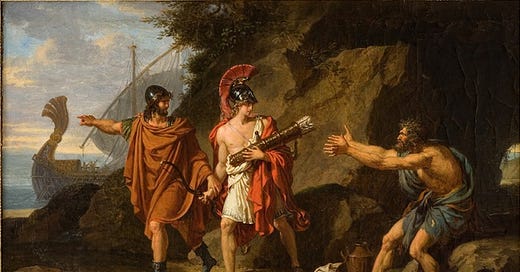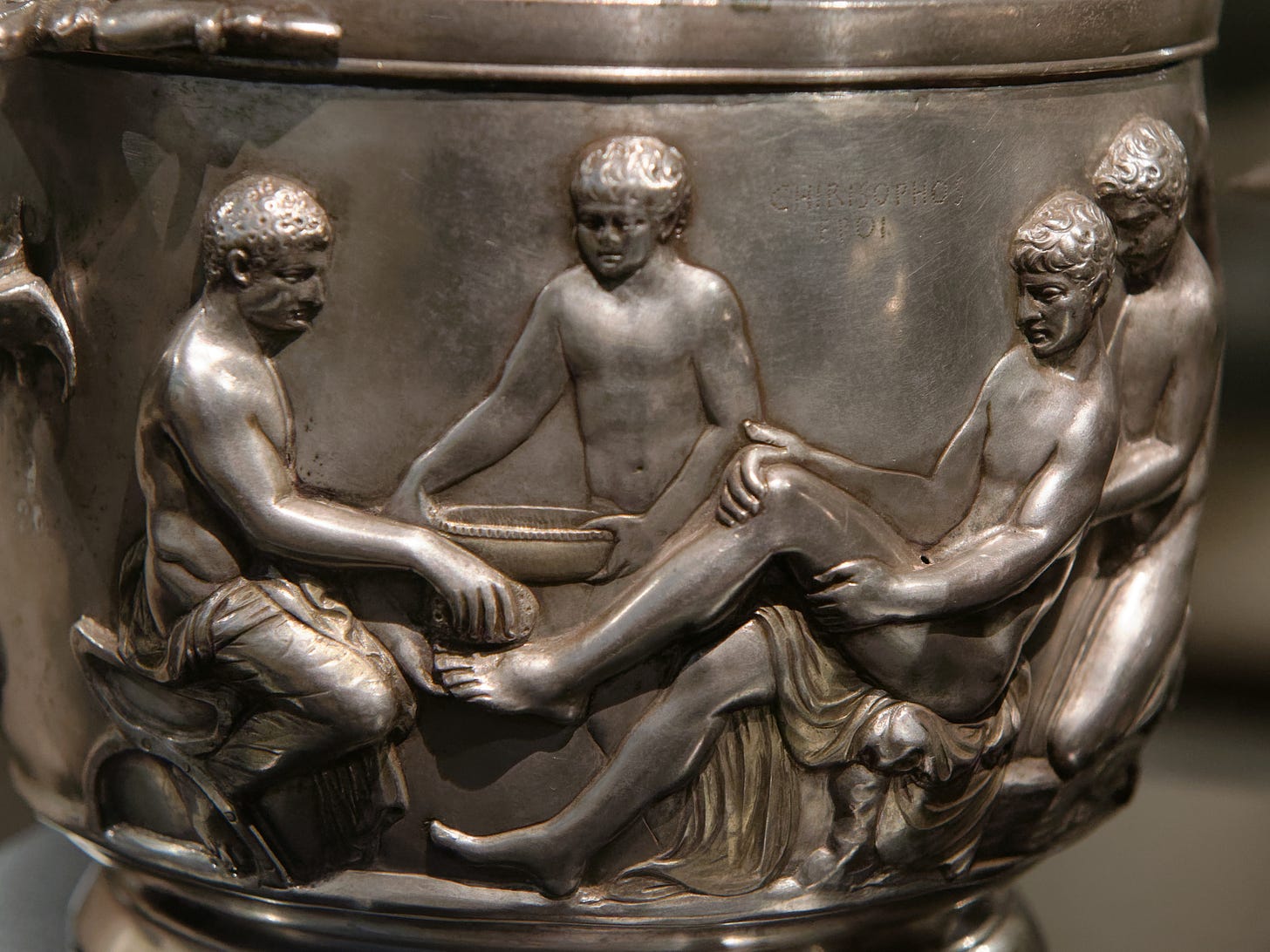How much can poetry bear the burden of inspiration? The burden, I mean, of being not inspired, but inspiring, in a way not facile or transparent or ridiculous? Poems are perhaps on their firmest footing in elegy and lament—“the sweetest songs are those that tell of saddest thought”—when the happy change of spring (say) sends the mind forward to winter and inevitable death. With description poets are also on solid ground, as with satire and invective; even the articulation of philosophy, while perhaps not the most natural use of poetry, seems a safer bet than affirmation, which is hard to win through to, across the thorny concessions and qualifications it requires. Self-help and poetry are different departments, and yet, what poet doesn’t want to help selves, her own and others’? What poet doesn’t want to set down those occasional feelings of expansiveness and the unwarranted bravura confidence that things will actually somehow work out—and in the process, to lodge a line, as Robert Frost said, where it will stick?
The title “Hope & History” was the theme of a poetry conference I attended last weekend. I had a great experience and loved poking around the Grass Valley thrift shops in between readings, but that’s not what this post is about. The phrase comes from a piece which was one of Seamus Heaney’s major stabs at the above—at saying something uplifting in the face of the succession of emergencies called history. The source text is generally treated as a short lyric poem called “The Cure at Troy,” though actually this is the title of a rather longer (though still not long) version of a Greek tragedy, Sophocles’ Philoctetes; Heaney’s phrasing has definitely “stuck,” in large part thanks to Joe Biden, whose love of the passage is informed by his own Irish Catholic heritage. It’s obvious why politicians, whose job is to peddle hope, might love these lines—but are they good poetry?
THE CURE AT TROY
Human beings suffer
They torture one another,
They get hurt and get hard.
No poem or play or song
Can fully right a wrong
Inflicted and endured.The innocent in gaols
Beat on their bars together.
A hunger-striker’s father
Stands in the graveyard dumb.
The police widow in veils
Faints at the funeral home.History says, Don’t hope
On this side of the grave.
But then, once in a lifetime
The longed-for tidal wave
Of justice can rise up,
And hope and history rhyme.So hope for a great sea-change
On the far side of revenge.
Believe that a further shore
Is reachable from here.
Believe in miracles
And cures and healing wells.Call miracle self-healing:
The utter, self-revealing
Double-take of feeling.
If there’s fire on the mountain
Or lightning and storm
And a god speaks from the skyThat means someone is hearing
The outcry and the birth-cry
Of new life at its term.
It means once in a lifetime
That justice can rise up
And hope and history rhyme.
Heaney is hardly the only Irish poet of his generation to use the Greek classics as a mirror for current events. (There is a book I’d like to get my hands on which discusses Irish adaptations of Greek tragedy.) Michael Longley’s Whitbread-winning Gorse Fires came out around the same time as The Cure at Troy and is similarly interested in the figure of Odysseus. For both poets, the classics function (to borrow Adrienne Rich’s metaphor) as a pair of “asbestos gloves” which help them take up materials otherwise too hot to handle. According to the publisher’s blurb, in poems like “Homecoming,” “Laertes,” “Anticleia,” “Argos,” and “The Butchers” (a brutal gut-punch), Longley’s interest in both the humanly tender and violently murderous side of Odysseus’ homecoming connects to the “ambiguities of life in Northern Ireland.” Such epic distancing becomes a major strand in Longley’s work, most famously in his great 1994 poem Ceasefire.
Ceasefire is a better poem than Heaney’s chorus, because it doesn’t varnish over the pain of reconciliation with grand abstractions. Priam says, simply and irrefutably:
‘I get down on my knees and do what must be done
And kiss Achilles’ hand, the killer of my son.’
Heaney, on the other hand, gives us a metaphorical “rhyme” between Hope and History — a fancy way of saying that, sometimes, things turn out as you hoped they would — and a “tidal wave / Of justice” which produces a “sea change.” Troy, as the party responsible for the war, did indeed experience something like a “tidal wave of justice” when the Greek armies obliterated it, but the metaphor, which should mean that the island will be swamped like Atlantis (those are pearls that were his eyes), is rather less in tune with the Irish tenor, where we are vaguely swept along to a “further shore” “on the far side of revenge.” The imagery seems to cohere, in that it all has something to do with the ocean, but doesn’t bear much weight—not unlike the eye-rolling assertion that two words rhyme which manifestly don’t. Heaney also tells us, otiosely, “No poem or play or song / Can fully right a wrong”—but can they do so mostly? partially? at all? Why not (e.g.) “No poem or play or song / Can make up for a wrong”? The understandable desire to say something grand and uplifting gets the better of Heaney here and there.
Yet Heaney’s lines are not without power, either, especially when listened to (rather than read) at the high point of a tragedy. Nor are they mere Pollyanna-ism: the first stanza acknowledges the suffering of Philoctetes — “hard” is used to describe him several times in the play, both by Neoptolemus (“contrary, hard and proud”) and by himself (“once bitten is hard-bitten”) — while the second concretely evokes the Irish conflict on both sides, the Republican hunger-strikers and the Unionist police widows. By my lights, the best line is “Call miracle self-healing,” which gestures toward epic “double determination” (the idea that actions have both divine and psychological motivations) and finds the numinous within the natural—it is indeed miraculous what humans can survive and move past.
My actual favorite lines in the play come in the middle of it, and are spoken by Neoptolemus, after he has cozened the bow out of Philoctetes’ hands. The poor guy has spent the last ten years on the deserted island of Lemnos, dragging around a snake-bitten foot and using his mighty MacGuffin of a weapon to hunt small game while seething with hatred for Odysseus, who left him there in the first place, when the smell of his wound and his cries of pain were sickening the rest of the army. Now that a prophecy has declared him and his bow indispensable for the sack of Troy, Odysseus has returned with Achilles’ son Neoptolemus—not the virulent Pyrrhus of Virgil’s Aeneid but a nobler, more idealistic specimen—whom he coaches in deception. Neoptolemus wins Philoctetes’ trust by ranting against Odysseus, just as Odysseus told him to, and offering him a berth on his ship home. The grateful Philoctetes reciprocates by letting him hold the bow, as Heracles had once gifted the bow to him for the mercy of lighting the pyre that put him out of his misery. Turning it over in his hands, Neoptolemus says:
οὐκ ἄχθομαί σ᾽ ἰδών τε καὶ λαβὼν φίλον:
ὅστις γὰρ εὖ δρᾶν εὖ παθὼν ἐπίσταται,
παντὸς γένοιτ᾽ ἂν κτήματος κρείσσων φίλος.I am not sorry that I found you and have gained your friendship, since whoever knows how to render benefit for a benefit received must prove a friend more valuable than any possession. [tr. Jebb]
The Greek is more interesting than Jebb’s translation suggests. “Whoever knows how to render benefit for a benefit received” is accurate, but given Philoctetes’ torment, it is hard not also to take παθὼν in its basic sense of “suffering” as well as “experiencing:” this would give “whoever knows how, having suffered well, to act well,” making a pointed contrast between Philoctetes and Neoptolemus, who is acutely aware he is not “acting well” (εὖ δρᾶν). In the third line, κρείσσων can also be rendered “mightier,” which is relevant when the κτῆμα under discussion is Heracles’ invincible bow. Neoptolemus claims that the friendship of Philoctetes is more powerful than the mightiest bow, the guarantor of victory at Troy; and yet Neoptolemus betrays his κρείσσων φίλος for the sake of that κτῆμα. The lines set up his eventual conscience-clearing return of the bow. Heaney’s version, even more than Sophocles’, expresses Neoptolemus’ awe at Philoctetes’ gift and at the commerce of kindness which Pindar would have called χάρις:
There’s a whole economy of kindness
Possible in the world; befriend a friend
And the chance of it’s increased and multiplied.
Something in the astonished spirit of this reminds me of Berryman’s “long wonder that the world can bear & be,” while the third line makes me think of David Lynch’s loopy certainty that, if only a critical mass would start practicing TM, war would disappear. Neoptolemus’ sentiment is genuine, but undermined by the falseness of his position; the poignancy of the lines derives from the way the shining utopian vision they articulate is contradicted by their ironic context.
It is also possible that Heaney’s chorus is less sanguine in context than it appears out of it. If Neoptolemus’ “economy of kindness” were in fact “possible in the world,” we would expect that, when he returns the ill-gotten bow, Philoctetes, too, would answer generosity with generosity, and willingly depart for Troy; but this is not what happens. Philoctetes begins and ends with refusal, and only the direct order of Heracles can reverse his decision. He is so wedded to his wound that it takes a literal divine intervention for him to accept the chance for healing he is offered. Does the fact, therefore, that his cure is, quite unmetaphorically, a miracle make this a hopeful or pessimistic take on the political deadlock in Ireland at the end of the 80s? Heaney tells us to hope, and to believe, but presumably not to hold our breath.
The Cure at Troy is a fine version of Sophocles’ play and an excellent case study in the classics as “news that stays news.” Its strength is in the portrayal of Philoctetes not as a Republican or a Unionist but as anyone who has been so twisted by ill-treatment that he prefers to harm the other side rather than help himself. Its main weakness, as far as I can tell, is a lack of clarity as to the balance it calls for between justice and forgiveness. Heaney is quite vague about how, exactly, to get to the “far side of revenge.” In Heaney’s play (but not in Sophocles’ Greek) Heracles instructs Philoctetes to sack Troy, but to “shun / Reprisal killings when that’s done.” What, in the Irish context, is to be sacked? On whom is the tidal wave of justice to fall? It is difficult for me to wrap my mind around an end to the cycle of Dike, of sectarian tit for tat, which does not involve, at some point, letting go of legitimate grievances—turning the other cheek rather than taking an eye for an eye. There is a Christian undercurrent to The Cure at Troy which is of course entirely absent from Sophocles, and which makes it seem fitting—perhaps a true rhyme of hope and history—that when, in 1998, eight years after The Cure at Troy was written, most of the unrest did finally come to an end, as if by miracle, on Easter weekend. This fact may point to the true staying power of Heaney’s lines—that history has added its authority to theirs.






This was such an interesting read. I haven't encountered Seamus Heaney before and learned so much! Love the image of using ancient material as a pair of "asbestos gloves," haha.